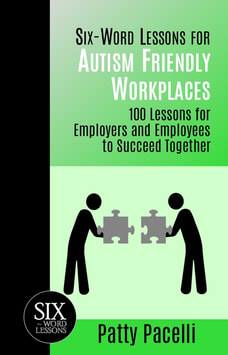 As our son Trevor reached about 18 months, we noticed he had stronger than normal reactions to certain happenings in his day. He got extremely upset at anything that interrupted the schedule that he had formed in his mind. He couldn't verbalize his feelings or thoughts at that age, so he would cry, scream and throw himself on the floor. Even when he became more verbal, at about 4, it was still difficult for him to explain what was wrong, and to control his emotions. He exhibited these behaviors in settings such as church and preschool, so on the way to church in the car we would coach him and have him repeat, "No yelling, no hitting, no falling down." We aren't sure how much that helped, but he remembered the words. At the time, he hadn't been diagnosed with anything other than speech delay, so we didn't know for sure what was causing these behaviors. We later learned these were early signs of autism. The difference from his older sister's behavior at the same age, was that he had different reasons for the tantrums, and less communication about those reasons. He got especially upset when something didn't happen the way he expected. It was so upsetting to him that he would throw himself on the ground even if it was something he loved, such as going to the zoo. The other big reason for his tantrums was being forced to switch quickly from one activity to another. Most kids that age love surprises, and distracting them from one thing with another is usually a good strategy to keep them happy. It was the opposite with Trevor. He had to have a lot of warning about any changes, and still was sometimes upset. He explains in his book, Six-Word Lessons on Growing Up Autistic, in the chapter, Sudden Changes are a Big Challenge, that he often had his whole day planned out, even as young as 4 or 5, so anything that changed or interrupted that was extremely upsetting. These reactions also sometimes led to occasional hitting, toy-grabbing, or other rude behaviors toward other children. Trevor's Dad, Lonnie Pacelli, created a one-minute video about the importance of keeping a schedule for people of all ages with autism spectrum disorders. Because of these extreme reactions, and the reasons for those reactions, combined with the speech and language delays discussed in a previous blog post, we were not surprised to receive the diagnosis of an autism spectrum disorder when Trevor was in kindergarten.  Patty Pacelli is an editor, author, entrepreneur, wife and mother of two adult children, Briana and Trevor. She is the co-creator of the Six-Word Lessons Series along with her husband Lonnie. She is the author of Six-Word Lessons to Look Your Best and Six-Word Lessons for Autism Friendly Workplaces.
0 Comments
Your comment will be posted after it is approved.
Leave a Reply. |
See the Authors!
All
|

 RSS Feed
RSS Feed